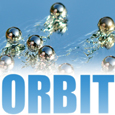Introduction to games: Difference between revisions
No edit summary |
No edit summary |
||
| (5 intermediate revisions by 3 users not shown) | |||
| Line 1: | Line 1: | ||
{{ResourcePageGroupMenu|vital}} | {{ResourcePageGroupMenu|vital}} | ||
{{Rinfo | {{Rinfo | ||
|type= Teacher Education | |||
|attribution={{VITAL}} | |||
|title= Introduction to games | |title= Introduction to games | ||
|topic=Games | |topic=Games | ||
|subject=Primary, | |subject= Secondary, Primary, Teacher Education | ||
|resourcenumber=TE0028 | |resourcenumber=TE0028 | ||
|age= | |age= | ||
|content= | KS4 , KS5, KS1, KS3, KS2, Secondary, Primary, Higher, Secondary | ||
|content= A course based around the action research cycle, looking at the use of games in education. | |||
|strategy= | |||
|final=yes | |||
|Learning Objectives=At the completion of this course, students should be able to demonstrate the following outcomes:<br />'''Professional and reflective practitioner skills'''<br />* be aware of available online games and how to link them to their curriculum plans,<br />* be able to reflect on, and discuss, the impact of the use of games to support learning Practical skills<br />* be able to support learning through the selection and use of online games in lessons. <br />'''Knowledge and understanding'''<br />* be able to demonstrate an understanding of what constitutes an online game and how it fits within game genres more generally, <br />* be able to demonstrate an understanding of the benefits of games-based learning in teaching and learning.<br />'''Cognitive skills'''<br />* be aware of how to critically review the use of games to support learning, <br />* be able to share these reviews with others and constructively critique their own and others’ views. | |Learning Objectives=At the completion of this course, students should be able to demonstrate the following outcomes:<br />'''Professional and reflective practitioner skills'''<br />* be aware of available online games and how to link them to their curriculum plans,<br />* be able to reflect on, and discuss, the impact of the use of games to support learning Practical skills<br />* be able to support learning through the selection and use of online games in lessons. <br />'''Knowledge and understanding'''<br />* be able to demonstrate an understanding of what constitutes an online game and how it fits within game genres more generally, <br />* be able to demonstrate an understanding of the benefits of games-based learning in teaching and learning.<br />'''Cognitive skills'''<br />* be aware of how to critically review the use of games to support learning, <br />* be able to share these reviews with others and constructively critique their own and others’ views. | ||
|additional resources= | |additional resources= | ||
|useful information= | |useful information= | ||
|related resources=[[Making games, motivating learners KS2]], [[Using the game Spore to motivate learners KS3]] | |related resources=[[Making games, motivating learners KS2]], [[Using the game Spore to motivate learners KS3]], [[Researching and evaluating a digital game for the classroom]] | ||
|other= | |other= | ||
|format=Various online activities. | |format=Various online activities. | ||
Latest revision as of 18:37, 31 January 2015
- Blog skills for subject specialists
- Copyright: keep it legal
- ESafety KS1
- Getting a buzz out of blogging
- ICT support in education (practitioner)
- Introduction to games
- Learning platforms all aboard
- Learning together developing wikis
- Learning together introducing wikis
- Making games and motivating learners KS2
- Multimedia skills and applications
- Researching and evaluating a digital game for the classroom
- Sharing ideas - developing wikis (primary)
- Sharing ideas introducing wikis
- The potential of technology
- Using the game Spore to motivate learners KS3
- Website development skills and applications
- Working with multimedia
- Wow them with wikipedia
- Writing using multimodal approaches KS1
- Writing using multimodal approaches KS3
About. A course based around the action research cycle, looking at the use of games in education.
Pedagogical content. This courses provides an introduction to games(tool) in the classroom. The course will focus on freely available online games, which can provide a starting point for exploring their use in the classroom without investment in hardware and software. At the conclusion of this course you will have engaged in lesson planning(ta), ready for implementation in your classroom. (edit)
| Resource details | |
| Title | Introduction to games |
| Topic | [[Topics/Games|Games]] |
| Teaching approach | [[Teaching Approaches/Planning|Planning]] |
| Learning Objectives | At the completion of this course, students should be able to demonstrate the following outcomes: |
| Format / structure | Various online activities. |
| Subject | [[Resources/Secondary|Secondary]], [[Resources/Teacher Education|Teacher Education]], [[Resources/Primary|Primary]] |
| Age of students / grade | [[Resources/KS5|KS5]], [[Resources/Secondary|Secondary]], [[Resources/Primary|Primary]], [[Resources/Higher|Higher]], [[Resources/KS1|KS1]], [[Resources/KS4|KS4]], [[Resources/KS3|KS3]], [[Resources/KS2|KS2]]
|
| Related ORBIT Wiki Resources | |
| Files and resources to view and download | http://www.vital.ac.uk/community/mod/oucontent/view.php?id=18104. Users must register with the VITAL website (free registration) before they can access the resource.
|

